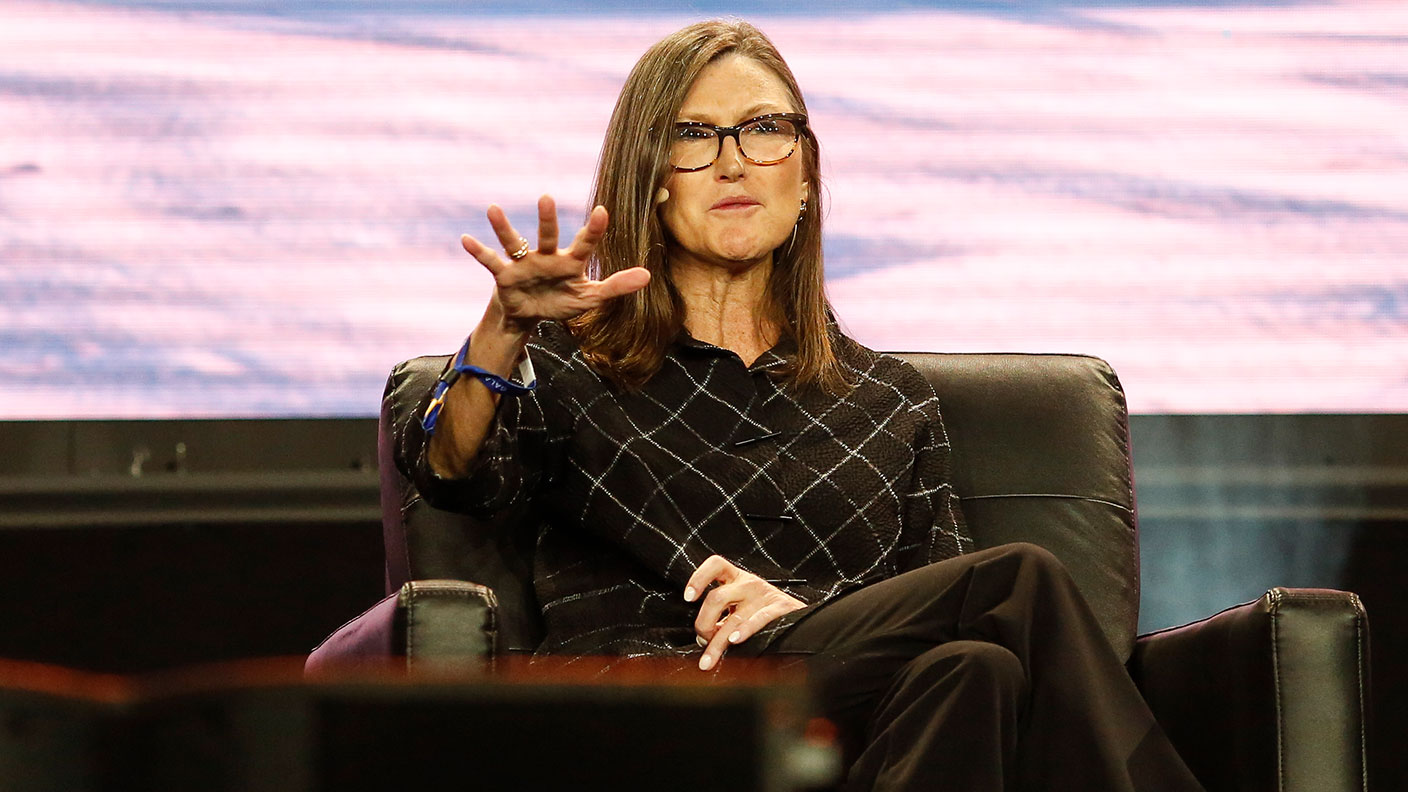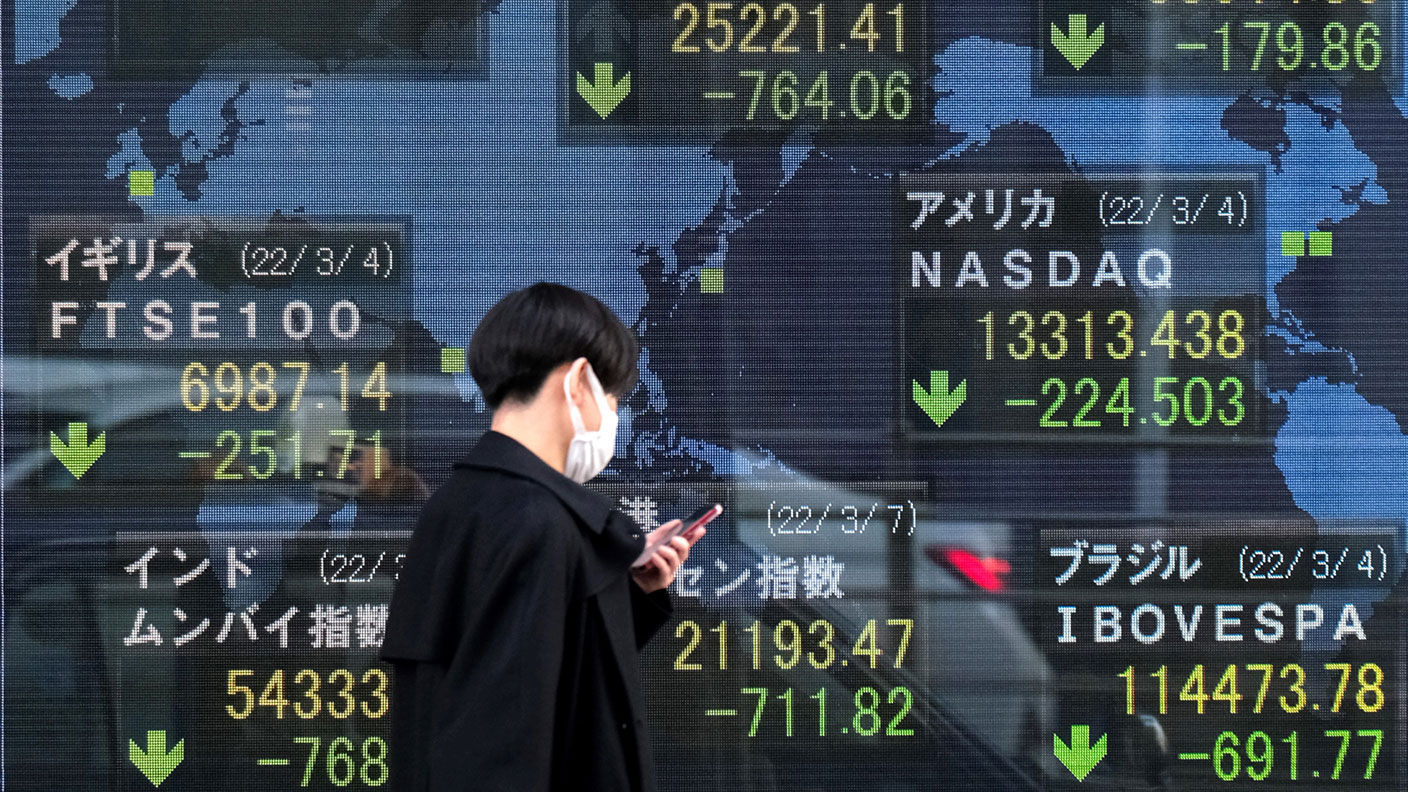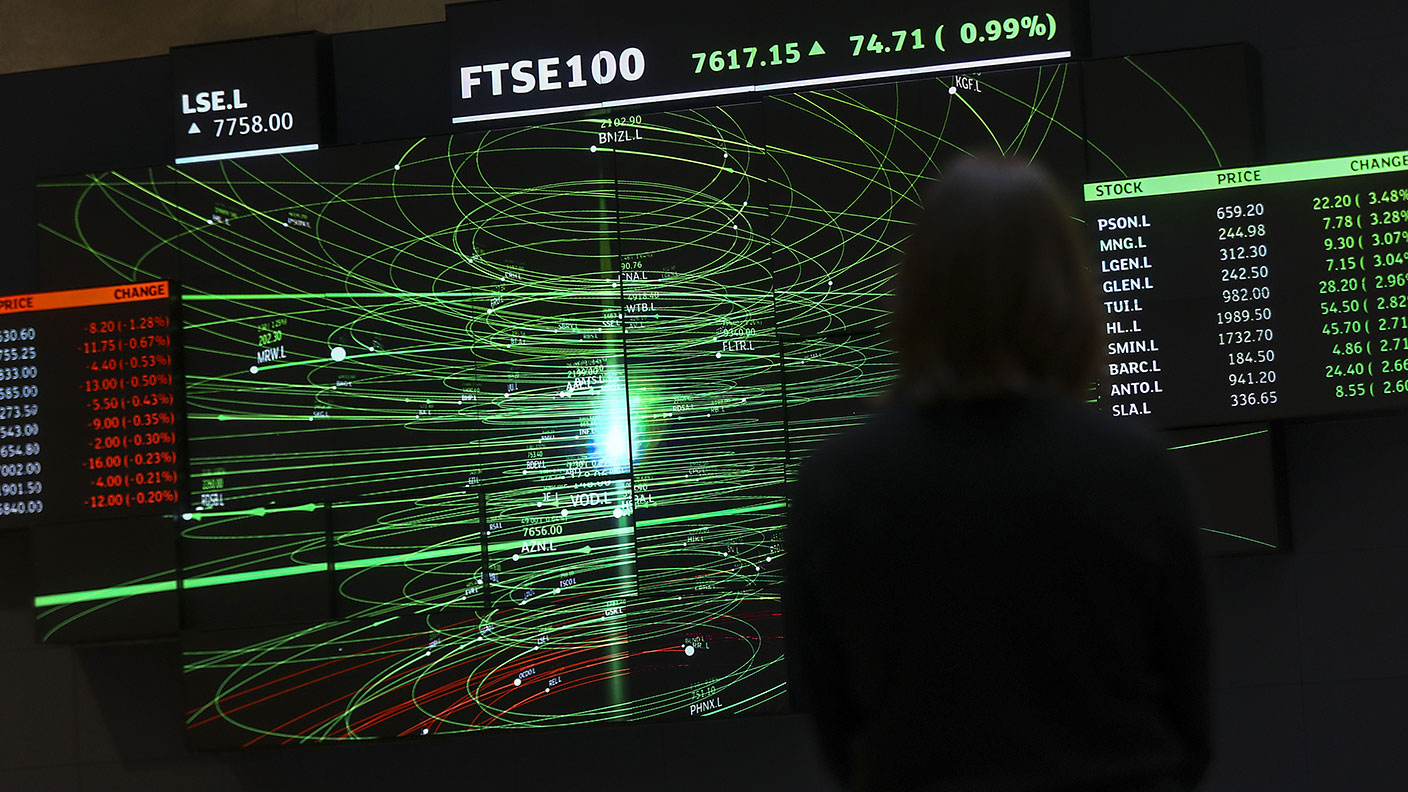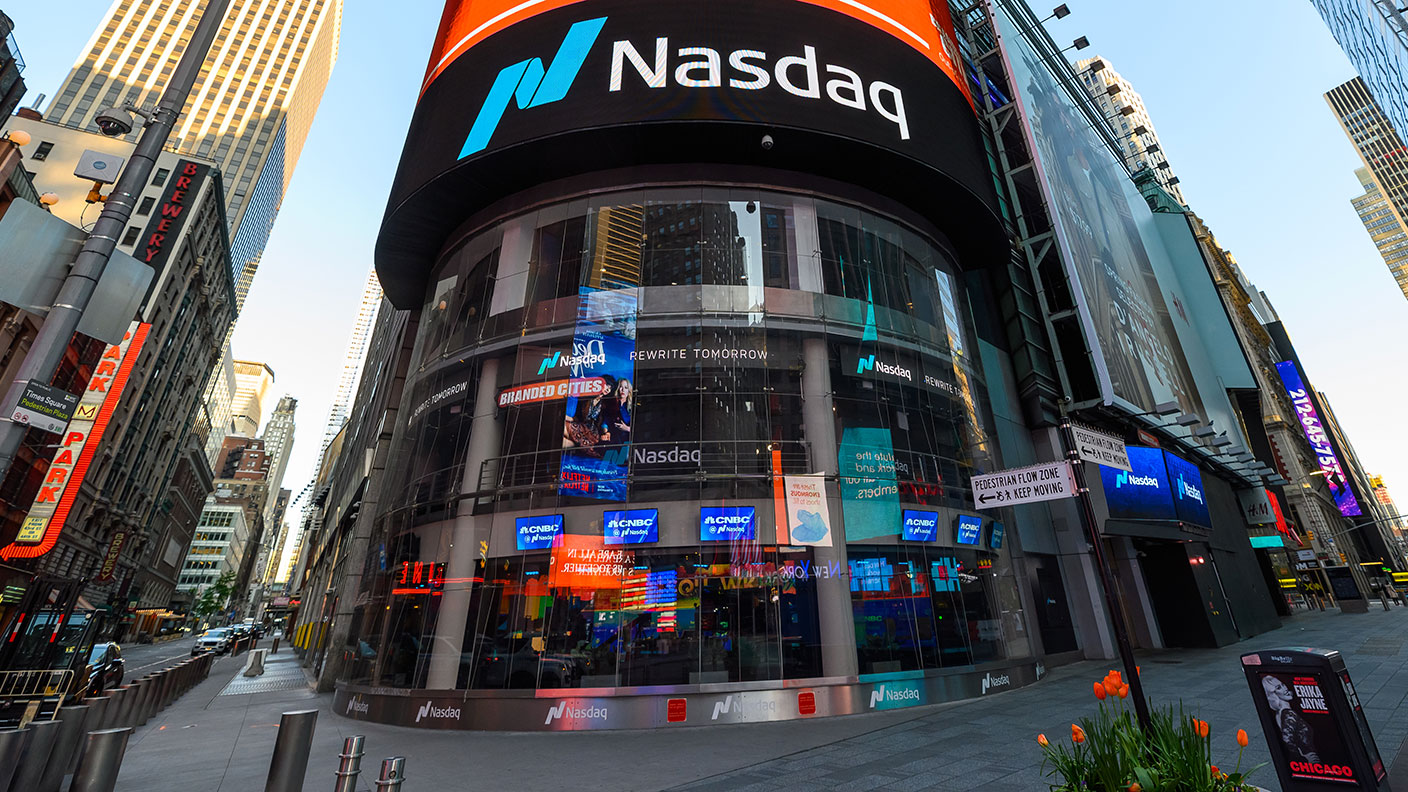Investors today are unreasonably bearish on oil companies
As the world looks to a future without fossil fuels, investors have abandoned oil companies. But we still need oil, says John Stepek. And this irrational hatred spells opportunity.

Get the latest financial news, insights and expert analysis from our award-winning MoneyWeek team, to help you understand what really matters when it comes to your finances.
You are now subscribed
Your newsletter sign-up was successful
Want to add more newsletters?

Twice daily
MoneyWeek
Get the latest financial news, insights and expert analysis from our award-winning MoneyWeek team, to help you understand what really matters when it comes to your finances.

Four times a week
Look After My Bills
Sign up to our free money-saving newsletter, filled with the latest news and expert advice to help you find the best tips and deals for managing your bills. Start saving today!

Last week, oil cartel Opec met up with non-cartel member Russia (collectively known as the Opec+ alliance).
The extended group agreed to cut oil production by more than expected half a million barrels a day. Saudi Arabia the biggest Opec producer also agreed to further voluntary cuts of 400,000.
Overall, we're now looking at more than two million barrels a day in cuts since the start of the year.
MoneyWeek
Subscribe to MoneyWeek today and get your first six magazine issues absolutely FREE

Sign up to Money Morning
Don't miss the latest investment and personal finances news, market analysis, plus money-saving tips with our free twice-daily newsletter
Don't miss the latest investment and personal finances news, market analysis, plus money-saving tips with our free twice-daily newsletter
Yet markets just didn't seem to be all that bothered.
No one cares about oil
Opec is worried about an oil glut hitting the market early next year. America just keeps pumping that shale oil. Meanwhile, analysts are concerned about weak global demand, partly due to the trade war and partly due to a cyclical downturn in manufacturing and in the semiconductor industry in particular.
That along with the long-term belief that oil is going the way of the dinosaur has helped to keep a lid on prices this year. There's also a sense that little stands between where we are today and a big supply glut that could drive prices over the cliff-edge again.
Obviously oil-dependent countries don't like that idea. The Saudis in particular are desperate to prop up the valuation of Saudi Aramco, the state-owned oil company whose shares start trading this week.
The IPO (initial public offering) has so far been disappointing (disappointing mainly in that the shares all had to be sold to locals who either bought out of patriotism or out of a desire to avoid being locked up again).
The desire by the Saudis to sell off the family jewels comes partly because they need to use it as a cash cow to fund their expensive welfare state while they are attempting to diversify their economy to be less dependent on black gold.
So it's not a big surprise that the cuts were larger than expected. What perhaps was more of a surprise was the market reaction. Oil jumped by 2% on Friday (and to be fair, it had been climbing for most of the week). But this morning, it's ticking back lower.
It's reminiscent (though much less extreme) of the market reaction after the Saudi oil refinery was targeted by drones in September. After that attack, oil surged higher. Within a few weeks, it was back to where it was before the assault.
To put it bluntly, no one cares.
The oil sector is hated out of all proportion right now
Want to get an idea of how despised and neglected the oil sector is right now?
Robin Wigglesworth of the FT tweeted out an interesting chart the other day. It showed that the market capitalisation of Apple (currently around $1.2trn) had surpassed the market capitalisation of the entire S&P 500 energy sector (around $1.1trn).
Now, Apple is an important company. One of the biggest smartphone providers in the world. One of the FAANG tech stocks. A company that has arguably helped to revolutionise our both our working and consumer lives.
But is it really worth more than every single one of the 28 companies in the S&P energy sector combined? In case you're wondering, that includes the world's biggest listed oil major, Exxon Mobil, as well as smaller majors such as Chevron. It includes oil services giants Halliburton and Schlumberger.
I mean, oil is still pretty important too. I look forward to the day when we're all driving electric cars and I'm pretty sure it'll come, but right now, we still need the stuff to get around. There's also the fact that we need it for plastics and various other useful materials.
I suppose my point is I don't disagree with the bear case for oil. In the long run, you have to hope that we can get most of our energy from renewable sources. This understanding (plus tough competition from the Americans) is what underpins Saudi Arabia's attempt to shift away from its oil dependence.
And, by the way, I think you can be entirely agnostic on climate change and still like this idea. I struggle to see the downside to replacing a finite, geopolitically sensitive, and highly polluting form of energy with a near-infinite and entirely clean form of energy, be that solar, wind or even nuclear.
So you can believe the "story" of stranded assets and all the rest of it. But you can also feel that the market has jumped the gun.
Just think back to 2000. It's arguable that all of the promises of the tech bubble have been fulfilled beyond anyone's wildest imaginings back then. But the prices put on tech stocks at the time were still unreasonable.
I'd suggest that something similar is happening in reverse to the oil sector.
On top of that, I still think that a rising oil price is one of the biggest potential nasty surprises for next year.
The level of complacency on that front is high at the moment. Oil is one of the few things that no one is really worried about. And yet, if you're looking for a problem that's tricky for central banks to deal with and which also presents a massive headache for politicians well, a rising oil price is public enemy number one.
As Louis Vincent Gave of Gavekal points out, even if you don't think that the oil sector is ridiculously hated, it represents a decent hedge against rising inflation, should that ever materialise. And in the meantime, decent dividend yields mean you're getting "paid to wait".
Get the latest financial news, insights and expert analysis from our award-winning MoneyWeek team, to help you understand what really matters when it comes to your finances.

-
 ISA fund and trust picks for every type of investor – which could work for you?
ISA fund and trust picks for every type of investor – which could work for you?Whether you’re an ISA investor seeking reliable returns, looking to add a bit more risk to your portfolio or are new to investing, MoneyWeek asked the experts for funds and investment trusts you could consider in 2026
-
 The most popular fund sectors of 2025 as investor outflows continue
The most popular fund sectors of 2025 as investor outflows continueIt was another difficult year for fund inflows but there are signs that investors are returning to the financial markets
-
 What can markets tell us about the economy and geopolitics?
What can markets tell us about the economy and geopolitics?Sponsored Markets have remained resilient despite Russia's war with Ukraine. Max King rounds up how reliable the stockmarket is in predicting economic outlooks.
-
 The tech bubble has burst – but I still want a Peloton
The tech bubble has burst – but I still want a PelotonAnalysis Peloton was one of the big winners from the Covid tech boom. But it's fallen over 90% as the tech stock bubble bursts and and everything else falls in tandem. Here, Dominic Frisby explains where to hide as markets crash.
-
 The market is adjusting to a new “short dreams, long reality” world
The market is adjusting to a new “short dreams, long reality” worldAnalysis As interest rates rise, things are starting to change, says John Stepek. Reality is biting back. Gone are the fanciful ideas built on hope – a business now needs a solid foundation.
-
 Stockmarkets bounced strongly yesterday – have we been saved from a bear market?
Stockmarkets bounced strongly yesterday – have we been saved from a bear market?Analysis Stockmarkets rose sharply yesterday after suffering big falls in recent weeks – but that doesn’t mean we've hit a bottom, says John Stepek. Here’s what’s going on.
-
 Buy Russia – it’s cheap
Buy Russia – it’s cheapOpinion If you want to make money investing, you need to buy stocks when they’re cheap. And right now, says Dominic Frisby, there’s nowhere cheaper than Russia. Here’s how to play it.
-
 UK stocks should cope with rising interest rates better than other markets
UK stocks should cope with rising interest rates better than other marketsAnalysis Central banks are turning hawkish and raising interest rates. John Stepek looks at what that means for both long duration and short duration assets.
-
 We’re in a “superbubble”, says Jeremy Grantham – so are we heading for a “superbust”?
We’re in a “superbubble”, says Jeremy Grantham – so are we heading for a “superbust”?Analysis America's Nasdaq stock index is down by more than 10% after soaring to all-time highs in a "superbubble". Are we about to see a "superbust" stockmarket crash? John Stepek looks at what's going on.
-
 Equity markets are growing again – but that might not be good news for investors
Equity markets are growing again – but that might not be good news for investorsAnalysis Last year was one of the busiest ever for new stockmarket listings. That may sound like good news for investors, but it spells tricky times ahead, says John Stepek. Here's why.